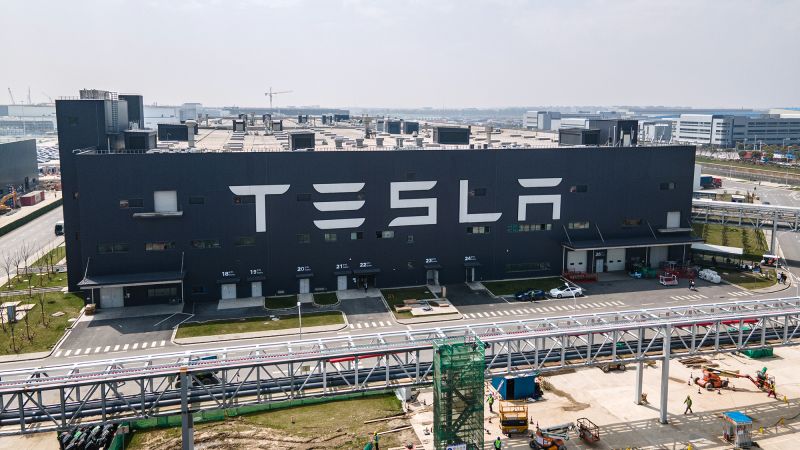Tesla has recently announced aggressive price cuts in China and Germany, following similar reductions in the United States. The company reduced prices of four models in China by 14,000 yuan, making the Model Y available for 249,900 yuan, its lowest price ever. In Germany, Tesla lowered the price of its Model 3 rear-wheel drive by 2,000 euros. These cuts come amidst declining sales and increased competition in major markets for the world’s largest maker of electric vehicles.
The initial price cuts were unveiled in the US, with three of Tesla’s five models seeing a $2,000 reduction. The Model Y, Model X, and Model S prices were lowered, while the Model 3 and the Cybertruck remained unchanged. These cuts arrive during a challenging period for Tesla, with stock prices falling over 40% year-to-date after reporting decreased quarterly deliveries and implementing job cuts across its global staff. CEO Elon Musk’s trip to India has been postponed due to company obligations, where he was expected to meet with Prime Minister Narendra Modi and confirm plans for a Tesla factory in the country.
In China, a highly competitive EV market, Tesla’s price cuts add fuel to an existing price war among manufacturers. Chinese EV maker Li Auto quickly responded by reducing prices on all four of its models. Tesla faces tough competition in China, where BYD briefly overtook it as the world’s bestselling EV brand in the fourth quarter of the previous year. BYD’s more affordable prices, including an entry-level model under $10,000, pose a challenge for Tesla, whose cheapest Model 3 now costs over $32,000 following the recent price cut.
The EV price war in China began in 2022 when Tesla first cut prices to stimulate sales due to economic slowdown. This move influenced other major manufacturers, impacting profit margins across the auto industry. In 2024, the competition continues with over 30 car makers announcing further price cuts. XPeng and BYD have also joined the fray by offering subsidies and reducing prices on their models. Xiaomi, a smartphone manufacturer, has entered the EV market with its SU7 sedan to compete with Tesla and other established players.
The price cuts by Tesla and other manufacturers reflect the intense competition in the EV market, particularly in China, which has become the largest EV market globally. With consumers increasingly price-sensitive and the economic landscape influencing purchasing decisions, companies are under pressure to offer competitive pricing. These price reductions aim to boost sales and market share amidst a challenging environment where profitability margins are squeezed. As the EV industry continues to evolve, manufacturers must navigate this competitive landscape to secure their position and appeal to a growing customer base.


